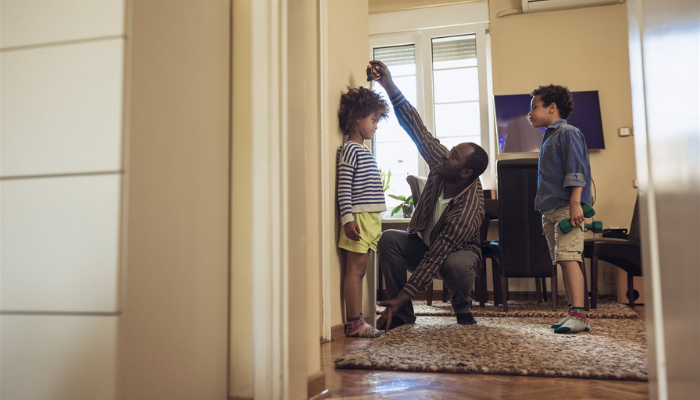Although many families aren’t driving as much these days, it’s always important to make sure you are keeping your kids as safe as possible in the car.
Now that we’re spending more time at home, this is a good time for parents and caregivers to brush up on expert advice for choosing, installing and properly using car seats, booster seats and seat belts. Making sure your child is buckled up correctly, on every car trip, is one of the best ways you can protect their health.
Stay safe on short trips
Most drives these days may be quick jaunts for necessary errands or appointments, but that doesn’t mean it’s safe for kids to skip their car seats or ride up front. According to a new study from the National Highway Traffic Safety Administration (NHTSA), one in three caregivers point to short trips as a reason they’ve sometimes skipped the car seat or booster seat. But a car crash can happen anywhere, at any time, which is why kids must be buckled in correctly every time. And no matter where you’re going, children under 13 should always ride in the back seat.
Practice installation
Now that you’re not rushing to get your child in the car for school or activities, take this opportunity to review your vehicle and car seat manuals and practice accurate installation. Many parents and caregivers report particular difficulty in securing lower anchor attachments and tethers, so if your car seat has those features, take additional time practicing those steps. Note that most car seats should be secured with either lower anchors or seat belts, not both.
Check your child’s weight and height
Keep in mind that the right car seat or booster seat for your child is based on their size as well as their age. Check your child’s height and weight against their current seat’s recommended limits. To keep them as protected as possible, don’t move them to the next seat type until they’ve exceeded either of those limits. Even if they beg and plead, you’re the parent, and you know best.
Register for safety updates
The last time you bought a car seat, do you remember filling out an online or mail-in form to register it? If you’re not sure, take a few minutes to go online and register so you can receive important safety updates from the manufacturers, including recalls.
Protect older kids too
For their own safety, kids 8 to 12 should use a booster seat until they outgrow its size limits or get big enough for adult seat belts. You’ll know they’re ready for a seat belt alone when it lies snugly across their shoulder and chest without crossing their neck or face, with the lap belt snugly crossing the upper thighs (not the stomach). Even if they’re ready for an adult seat belt, children under 13 should never sit in the front seat.
During these times of uncertainty, one thing you can control is how you keep your children safe in the car. For tips, interactive tools, and videos to help you choose and use the right seat, visit NHTSA.gov/TheRightSeat.
Have you seen our Cafe´ Newsfeed? Click here.
Graco SlimFit 3 in 1 Convertible Car Seat | Infant to Toddler Car Seat, Saves Space in your Back Seat, Darcie
KidsEmbrace 2-in-1 Harness Booster Car Seat, DC Comics Batman

